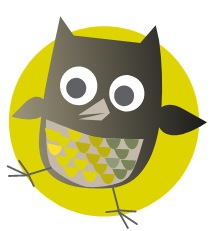Every writer wants to find the perfect words to tell their story. These activities will guide your child through four ways to make their language sparkle, from creating striking similes to wielding unusual words. Why not encourage your child to use their newfound vocabulary to create a stunning entry for the BBC 500 Words competition?
Please note: The closing date for BBC 500 Words 2020 is Thursday 27th February. Find out more on our BBC 500 Words page.
1. Making your similes shine like the sun
Here are some great similes from the 500 Words competition 2017:
- As tall as a dozen giraffes standing on top of each other.
- Each step I took crackled like bacon cooking in a pan full of oil.
- My mouth hung open like the gates of Willy Wonka’s Chocolate Factory.
Talk with your child about the pictures these similes paint. Then, challenge them to come up with their own similes by finishing the phrases below:
- Soar like a ________.
- As cunning as a ________.
- As dark as ________.
- As easy as ________.
- As sharp as a ________.
- As tall as ________.
- Eat like a ________.
- As fast as ________.
- As red as ________.
- As loud as ________.
- Like a ________ in a china shop.
- As ________ as a feather.
1. Striking similies
Download the BBC 500 Words activity sheet and complete the examples below to create your own striking similes. Have your child try to choose unexpected words that will create an original picture in the reader’s mind. Then, they can create their own similes from scratch!
2. Inventing words
Blending different words together to create new compound words can add interesting ideas and characters to a story. For example, blending ‘man’ and ‘suffragettes’ creates ‘manffragettes’, while if you add ‘water’ to a ‘yeti’ you end up with a ‘weti’! Challenge your aspiring author to blend different words to make their own compound creations.
3. Using synonyms
A writer shouldn’t always settle for the first word that pops into their head. Encourage your child to flick through a thesaurus to find better alternatives for overused words like ‘big’ and ‘nice’. You could play a game to get your child thinking about more interesting words – why not start with a simple word and challenge each other to come up with better and better synonyms, for example, ‘big’, ‘enormous’, ‘gigantic’, ‘dinosaurian’…
Author Top Tip:
Don’t always use the first word that comes into your mind. Instead of saying that a character in your story talks a lot, why not describe them as a ‘blatherskite’ or say that they’re speaking ‘loquaciously’?
4. Get gongoozling!
From ‘squeegees’ to ‘widdershins’, ‘mulligrubs’ to ‘mugwumps’, get your child hitting the dictionary to find out the meanings of some of these funny-sounding words! Challenge your budding writer to find their own funny words to weave into their stories. Could they fit a ‘flibbertigibbet’ into their story, or perhaps find space for a ‘jackanapes’?
More from Oxford Owl
- Blog: 4 tips to inspire children’s creative writing
- Blog: 4 top tips for writing great plots
- Blog: 4 fun ways to develop characters for a short story
- Activity sheets: Have fun with words with our activity sheets
- Tips and activities: On our How to Write Your Best Story Ever! page, children’s author Christopher Edge shares his top 10 tips to get your child writing, whilst free activity sheets will help them discover their inner author.
Books to support creative writing
How to Write Your Best Story Ever!
Christopher Edge | Age 9+
Ideal for children wanting to enter story writing competitions! This is a humorous and authoritative book that will awaken the author in every child, unlocking their story ideas and giving them hints and tips to create their own stories.
How To Be A Young #Writer
Christopher Edge
This book will help children learn to craft brilliant stories, create believable characters, write powerful endings and much more. Packed with practical tips and insider advice from published authors, this guide opens up the secrets of how to write well and guides young writers all the way through from beating the fear of the blank page and learning to edit their work, to how to get other people reading their stories.
Write Your Best Story Ever! Notebook
Christopher Edge | Age 7+
A must-have notebook to unlock the imagination and inspire children to start writing, full of great hints and tips, and activity pages for jotting down words, sketching characters, and writing in stories.





